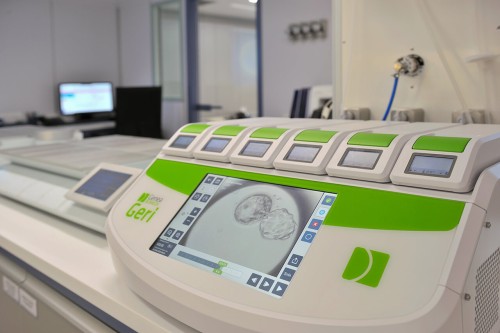Time-Lapse Technology
One of the most important aspects in the embryology laboratory is the culture of the embryos in special incubators during their first days of development.
Traditional embryo culture involves monitoring embryos, daily, in order to record cell divisions in each embryo separately and grade its quality. In order to do so, we need to remove them from the incubator disrupting the culture conditions. Moreover, the evaluation concerns only the certain moment that the observation takes place, without being able to watch thoroughly all the developmental events during the 5-day culture.
Traditional embryo culture involves monitoring embryos, daily, in order to record cell divisions in each embryo separately and grade its quality. In order to do so, we need to remove them from the incubator disrupting the culture conditions. Moreover, the evaluation concerns only the certain moment that the observation takes place, without being able to watch thoroughly all the developmental events during the 5-day culture.
Geri® (GENEA) incubator
Our new incubator Geri® (GENEA) incorporates time-lapse imaging, giving us the opportunity to monitor embryos constantly, even remotely, and capture critical developmental stages of embryo development. Designed to offer an individualized and undisturbed incubation, Geri® provides stable culture conditions in an optimal environment. It contains six individual incubators/chambers, designed to have a single patient in each chamber. Each chamber has its own dedicated camera, capturing up to 11 focal planes every 5 minutes. This feature eliminates the need to move embryos around the incubator.
Time-lapse technology in IVF and AI
GERI incubator enables us combine the morphological observations with the time line that they occur, with the use of special software, in order to choose the embryos with the best potential either for embryo transfer or cryopreservation. Moreover, the couple can receive the videos of the embryos’ development from fertilization until the blastocyst stage.The use of Time-lapse technology in IVF, due to the vast amount of data that provides us, combined with artificial intelligence will help us in the future predict with more accuracy, which embryos can implant successfully and give a full-term pregnancy. We hope, in this way, to help infertile couples make their dreams come true and, finally, hold in their hands the baby that they wish.











